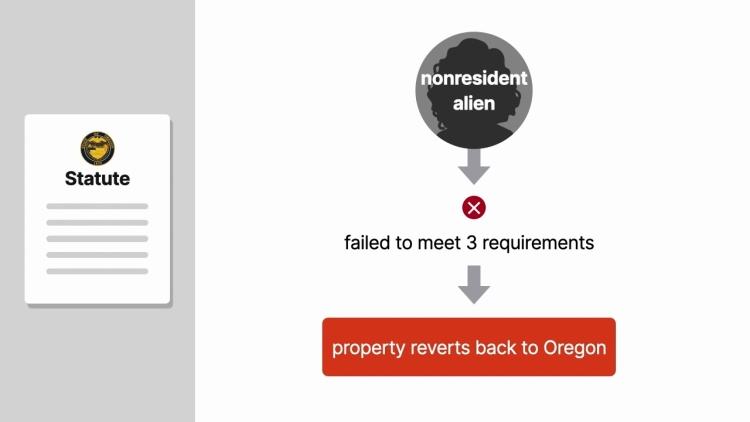Zschernig v. Miller
United States Supreme Court
389 U.S. 429, 88 S. Ct. 664, 19 L. Ed. 2D 683 (1968)

- Written by Mary Phelan D'Isa, JD
Facts
An American citizen died intestate in Oregon and left real and personal property to relatives in Germany. An Oregon escheat statute conditioned an alien’s right to inherit on three requirements: (1) an American citizen’s reciprocal right to inherit in the alien’s country on the same terms as citizens in that country; (2) an American citizen’s right to receive payment in the United States of funds from an estate in the alien’s country; and (3) the alien’s right to receive proceeds from the Oregon estate without confiscation. An Oregon trial court found there was no such reciprocal right in this case. The Oregon Supreme Court affirmed but found that under a 1923 treaty that was still effective with Germany and the decision in Clark v. Allen, 331 U.S. 503 (1947), the heirs were permitted to take the Oregon realty but not the Oregon personal property.
Rule of Law
Issue
Holding and Reasoning (Douglas, J.)
Concurrence (Harlan, J.)
What to do next…
Here's why 899,000 law students have relied on our case briefs:
- Written by law professors and practitioners, not other law students. 47,000 briefs, keyed to 994 casebooks. Top-notch customer support.
- The right amount of information, includes the facts, issues, rule of law, holding and reasoning, and any concurrences and dissents.
- Access in your classes, works on your mobile and tablet. Massive library of related video lessons and high quality multiple-choice questions.
- Easy to use, uniform format for every case brief. Written in plain English, not in legalese. Our briefs summarize and simplify; they don’t just repeat the court’s language.





